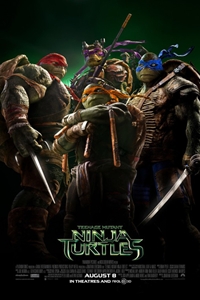 Teenage Mutant Ninja Turtles
Teenage Mutant Ninja Turtles
Starring Megan Fox, William Fichtner, Will Arnett and Johnny Knoxville
Directed by Jonathan Liebesman
From Paramount Pictures
Rated PG-13
101 minutes
Releases on August 8th, 2014
by Michael Clawson of Terminal Volume
Late in the rebooted Teenage Mutant Ninja Turtle movie, the knife-bedazzled villain Shredder says, “Tonight I dine on turtle soup.” Funny, because that’s exactly what I was thinking.
In one of the most block-headed reboots to come out of Hollywood’s trendy Reboot-a-Thon, the Michael Bay-produced Teenage Mutant Ninja Turtles further perpetuates the principle of diminishing returns when it comes to re-imagining every design that was on your bed sheets when you were 7 years old. Recall how the original movies were silly fun and, yes, heaps full of stupid. Bay and director Jonathan Liebesman (Battle Los Angeles) vacuum all the color, visual gags and life from the franchise and supplant it with grit, haze and shadows.
No one is going to try and convince you the original Teenage Mutant Ninja Turtles franchise was quality cinema. It was early ’90s counterculture (“Cowabunga, dudes”) wrapped up in a blank check to the pizza industry. It was kitsch and camp, rubber-faced costumes and pre-X-Games skateboard stunts. It was the kind of movie that pre-teen You loved, but if you were to watch it today be kinda embarrassed about. But the movie had pluck, and the plot and characters made sense. (I can’t believe I’m defending those movies.)
In the reboot, the plot is about as subtle as stomping through rain puddles in a minefield. It opens on Megan Fox as a journalist — the movie’s first big joke. Fox is April O’Neil, a reporter at a New York City television station who says during a live broadcast, in Times Square no less, “Hey guys, I’m here in New York City …” Because all the viewers thought she was in Sheboygan, and she cleared that right up. The journalism stuff is all unintentionally hilarious, including a clueless editor played by Whoopi Goldberg, April’s fact-free brand of reporting, and poor Will Arnett who keeps using the phrase “put it to bed” totally unaware that it’s an actual news term that means the opposite of what he’s talking about.
April, the daughter of a dead scientist who experimented on turtles, gets a hunch about masked vigilantes trolling the Foot Clan, the city’s pesky paramilitary gang that operates in the shadows. She follows her make-believe leads until she finds the actual Teenage Mutant Ninja Turtles, hulking human-turtle hybrids with large prehistoric shells and color-coordinated masks. There is sword-swinging Leonardo (voiced by Johnny Knoxville), the leader; Raphael, the rebellious outcast; Michelangelo, the jokester and pizza fiend; and Donatello, the IT turtle who wears nerd glasses and a large headset array on his face.
The turtles are designed beefier and sturdier than the earlier movies. They’re given lots of sewer-scavenged accessories — a bamboo chestplate, recycled sunglasses, do-rags, shell necklaces and, because whatever, a rocket skateboard — that allow them a grittier fashion sense, albeit a homeless one. The four reptiles are also entirely CGI, giving them a creepy animated vibe. Making matters worse, none of the voice acting is convincing, or even memorable. They may be teens, but the turtles are voiced by gravel-voiced middle-aged men whose mothers couldn't pick their voices out in a vocal lineup.
Anyway, April and the turtles — and their rat leader, Splinter — team up to disassemble the Foot Clan and it’s shadowy leader, who you will never in a million years guess. (It’s William Fichtner and that was sarcasm.) Fichtner plays Eric Sacks, the Foot’s financier who only speaks in exposition-filled diatribes. He hatches a plot to gas all of Manhattan so he can sell everyone a poison antidote. Sacks, a name that is funnier the more I read it, is willing to kill a whole bunch of people so he can be “stupidly rich,” but he lives in a Bruce Wayne-sized mansion with helicopter pad, owns numerous multinational corporations and has the mayor on speed dial — his priorities are a little screwy.
Being that this is a Michael Bay movie, at some point a Transformer had to show up. This Transformer's name is Shredder. He’s a human ninja wrapped in a metal knife-suit that could easily be mistaken for one of Hasbro’s transforming robots. And like Bay’s Transformers, Shredder doesn't really have a form or shape, but rather metal tips and wings and appendages. Imagine taking a human shape and welding a junkyard to it … Shredder looks like that.
The film’s mush of gunfights and ninjutsu is appropriately idiotic — the only thing it inherited from the original series — and takes place in the turtle’s subterranean sewer plaza, high atop a skyscraper and skidding down the world’s longest mountain snow slide. There are hints of zaniness, though much of it feels like a rehash of the Transformers movies, now with more reptiles. Ninja Turtles might also have the worst photography of the year: much of the movie is foggy and dark, and the 3D doesn't brighten the mud. It also doesn't help that every camera gimmick is used, from shaky cam and its stepchild spinney cam to lens flares and haze filters. It’s as if Liebesman (let me repeat his credential here: Battle Los Angeles!!!) didn't want us to watch his movie at all, which is actually my recommendation.
Lastly, let me talk about Megan Fox. Critics sometimes joke about bad performances, and we’re prone to hyperbole, but I feel confident about this next sentence: acting doesn't get much worse than it does right here with Megan Fox. At one point she’s out-performed by a pizza box, and then tube of ooze, and then four CGI turtles who live in a tube made to funnel human excrement out of a city. We've know Fox was an awful actress for some time, but this confirms that she’s also a glutton for punishment. She spends much of the movie being thrown from one dangerous stunt to another, but the film always has time to admire her ass. “You’re a complicated chick,” Arnett’s character says as he drills holes through her jeans with his eyes. Fox had an epic falling-out with Bay during the Transformers movies, and supposedly she made nice to be cast here. If this is what happens when you apologize to Michael Bay, then he may never hear “I’m sorry” ever again.
So, who’s ready for that soup?

 Into the Storm
Into the Storm
 TRISTAR ANNOUNCES TITLE AND WRAP OF PRODUCTION FOR
“THE WALK”
TRISTAR ANNOUNCES TITLE AND WRAP OF PRODUCTION FOR
“THE WALK” Center towers. Guided by his real-life mentor, Papa Rudy (Ben Kingsley), and aided by an unlikely band of international recruits, Petit and his gang overcome long odds, betrayals, dissension and countless close calls to conceive and execute their mad plan. Robert Zemeckis, the director of such marvels as Forrest Gump, Cast Away, Back to the Future, Polar Express, and Flight, again uses cutting edge technology in the service of an emotional, character-driven story. With innovative photorealistic techniques and IMAX 3D wizardry, The Walk is true big-screen cinema, a chance for moviegoers to viscerally experience the feeling of reaching the clouds. The film is a love letter to Paris and New York City in the 1970s, but most of all, to the Towers of the World Trade Center.
Center towers. Guided by his real-life mentor, Papa Rudy (Ben Kingsley), and aided by an unlikely band of international recruits, Petit and his gang overcome long odds, betrayals, dissension and countless close calls to conceive and execute their mad plan. Robert Zemeckis, the director of such marvels as Forrest Gump, Cast Away, Back to the Future, Polar Express, and Flight, again uses cutting edge technology in the service of an emotional, character-driven story. With innovative photorealistic techniques and IMAX 3D wizardry, The Walk is true big-screen cinema, a chance for moviegoers to viscerally experience the feeling of reaching the clouds. The film is a love letter to Paris and New York City in the 1970s, but most of all, to the Towers of the World Trade Center.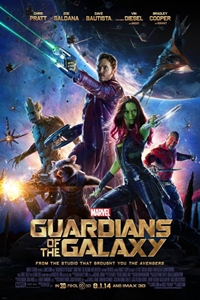 Guardians of the Galaxy
Guardians of the Galaxy
 Get On Up
Get On Up
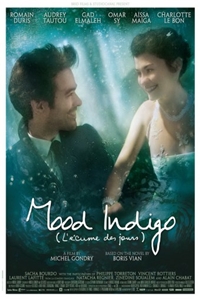 Mood Indigo
Mood Indigo
 Magic in the Moonlight
Magic in the Moonlight
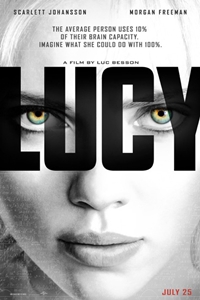 Lucy
Lucy
 I Origins
I Origins
 Gabriel Iglesias talks about “The Fluffy Movie”, his life and cake
Gabriel Iglesias talks about “The Fluffy Movie”, his life and cake
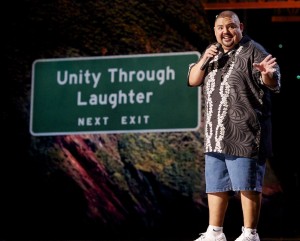
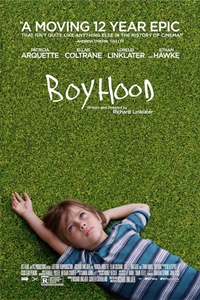 Boyhood
Boyhood
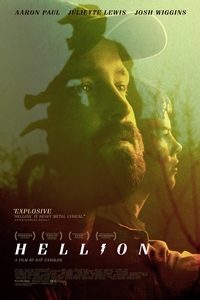 Hellion
Hellion
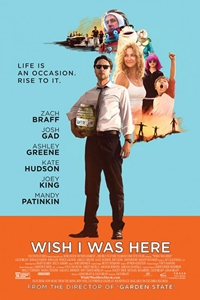 Wish I Was Here
Wish I Was Here
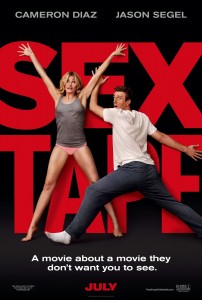 Sex Tape
Sex Tape
 The Purge: Anarchy
The Purge: Anarchy








